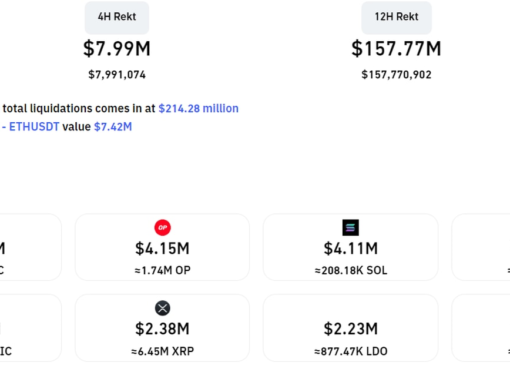As Canada approaches a pivotal election on April 28, 2025, Lucas Matheson, CEO of Coinbase Canada, is positioning the cryptocurrency giant for influence in a market he believes is primed for blockchain innovation. I spoke with him about the cryptocurrency exchange’s expanding presence in Canada, the unique characteristics of the Canadian market, and his vision for the country’s crypto future. Our conversation revealed not only Coinbase’s strategic ambitions but also Matheson’s personal passion for advancing blockchain adoption in his home country.
As a Canadian entrepreneur with experience in both traditional finance and tech startups who joined Coinbase after nearly six years at Shopify, Matheson urges the Canadian government to move quickly to integrate crypto into their economy.
This interview has been condensed and lightly edited for clarity.
CoinDesk: Your career has taken you from traditional finance to Shopify to crypto. Was there a specific moment when you realized digital assets would reshape finance, or was it a gradual conviction?
Lucas: I’m a Canadian entrepreneur and I’ve been working in finance and business most of my career. I spent the first part of my career in finance, mostly in M&A, and I founded a tech company after grad school with my best friend in Silicon Valley, which is where I started my journey with Coinbase. I’ve been a Coinbase customer for over 10 years now.
After selling that company, I joined Shopify and I worked there for almost six years, helping build their business, their operational and finance functions. At Coinbase, I help lead a team who are building a platform for Canadians to diversify their assets into the digital economy.
CoinDesk: How long has Coinbase been operating in Canada, and what regulatory milestones have you achieved?
Lucas: Coinbase has been in Canada for almost four years now. We’ve been officially pursuing our registration here in Canada for a number of years as well. Canada is registered as a restricted dealer under CSA. We’re the first international exchange to be registered in Canada.
We’re lucky to have a regulatory regime here where we operate under a compliant regime in Canada to grow our business. We are now pursuing our IIROC registration with IIROC as a full dealer registration, that’ll expand the types of products and services that we can offer Canadians.
CoinDesk: Ethereum was born in Canada, yet most of its ecosystem developed elsewhere. Is there a certain irony in having to convince Canadian institutions to embrace a technology with Canadian roots?
Lucas: Coinbase seeks regulatory clarity all over the world, and we look for markets that provide stability and clear rules for us to operate under a regime. Canada is one of those markets that is identified as being open to providing clear rules and regulating cryptocurrency exchanges like Coinbase.
When we look across the world, Canada’s also a very crypto-literate country. It’s the third most crypto-aware country of all the international locations that we operate in, so we have quite a strong awareness about the technology here.
The opportunity for it to help our financial system — as you probably know, Ethereum was founded here in Canada. We have very strong roots here in Canada around cryptocurrency and around technology. We have a lot of really great universities in computing science that are focused on blockchain technology and helping our students in Canada understand the opportunity.
CoinDesk: That’s fascinating about Canada being the third most crypto-aware country. How does that translate to adoption rates?
Lucas: When we survey countries around the world, we survey how aware citizens are to specific types of cryptocurrencies, uses of cryptocurrencies and technology. Canadians are the third most crypto-aware country of all the international markets that we survey.
We see some surveys in Canada suggesting that upwards of 30% of Canadians by the end of this year will own digital assets. So we see very strong adoption in Canada and healthy diversification into the asset class. Of course, Canada was the first to introduce crypto-related ETFs, so we have quite a broad awareness about the opportunity for Canadians to diversify into crypto through traditional ETFs as well.
CoinDesk: Who are the Canadians using Coinbase? Is there a particular demographic profile?
Lucas: We have a very broad distribution of demographics in Canada. We have a very diverse user group in Canada—people who are diversifying from young students, immigrants who are looking to remit money.
We see a significant number of people building and diversifying portfolios, accumulating digital assets for long-term diversification and wealth preservation. Then we have a significant amount of institutional investors in Canada starting to diversify assets into the crypto economy as well.
So we see very strong adoption across retail, and in Canada specifically now we’re seeing a healthier adoption from institutional investors and more interest from institutional investors, pension funds, asset managers who are exploring diversifying their clients’ assets into crypto as well.
CoinDesk: With Canada’s election approaching on April 28th, what policy changes would you like to see from the next government?
Lucas: We proposed a number of changes for our new government to really think deeply about over the next term. We’ve recommended that they:
- Launch a government task force and create a national crypto strategy
- Consider a Bitcoin strategic reserve
- Regulate stablecoins federally from a prudential regulator as a payment instrument
- Introduce a market structure bill like we’re seeing in the US where we can clearly define crypto assets so that it’s clear for the public, institutions, and builders exactly how crypto assets are defined
- Make it easier for banks to bank crypto trading platforms in Canada
Currently, our large banks—we have big banks with 80-90% of the money in Canada—do not bank crypto trading platforms, so we are very keen to help our government encourage our financial institutions to participate in the digital economy. (You can read Lucas’s writing on what Canada should do to be a global crypto leader here.)
CoinDesk: You’ve mentioned ‘Stand with Crypto’ as an advocacy initiative. How are you organizing the industry to influence policy in Canada?
Lucas: ‘Stand with Crypto’ is an organization that has advocated for clear rules all around the world for crypto, and we’ve recently launched Stand with Crypto here in Canada with a number of partners. We have a number of crypto trading partners joining Stand with Crypto to help us advocate for change.
Stand with Crypto is really an opportunity for our elected officials to understand this opportunity so that we can prioritize it clearly. Canada has a lot of priorities and challenges within our economy, and crypto technology can help us rebuild our economy and our economic freedom. That’s one of the ways that we organize.
Canada also has two strong industry associations, the Canadian Blockchain Consortium and the Canadian Web3 Council, and these organizations help unify views and help us align on opportunities that we can engage with our regulators to drive more regulatory clarity in the market.
CoinDesk: Decentralized exchanges (DEXs) are challenging centralized platforms like Coinbase in the US. How do you view this trend affecting your business in Canada?
Lucas: I think decentralized finance will form a very healthy and significant part of our financial economy. I think that’s the foundation of the technology and the ecosystem—to decentralize financial interactions in a trusted, safe, compliant manner.
I think the decentralization of finance will be a healthy part of how some investors will choose to participate. But centralized exchanges provide a very valuable tool to on-ramp and off-ramp from the digital economy in a compliant way that helps governments and institutions around the world get comfort that platforms like Coinbase are managing risks appropriately, managing anti-money laundering, terrorist financing, ensuring that people on their platform are acting in good faith.
CoinDesk: If you could say a few things to the upcoming administration, what would they be?
Lucas: I would say the rest of the world is moving quickly to adopt crypto and integrate it into their economy. It’s time for Canada to do the same—to integrate crypto into our economy, build a national strategy, and educate Canadians about why the world is going digital.
CoinDesk: There seems to be a patriotic element to your advocacy. Do you see Canada becoming a global leader in crypto?
Lucas: I think Canada can be a leader in crypto. Canada has the opportunity to embrace this technology in a meaningful way to help this country rebuild ourselves and grow our economy.
I think we’re entering a time where we need to rethink how we organize our government, how we tax our government, how we generate revenues, and how we spend money. I think we’re entering a cycle where governments are expected to do more with less. That’s what entrepreneurs do with technology every day, and that’s what governments around the world are starting to embrace is the opportunity to do more with less, to be more efficient, to provide better government services through technology, to be more entrepreneurial.




